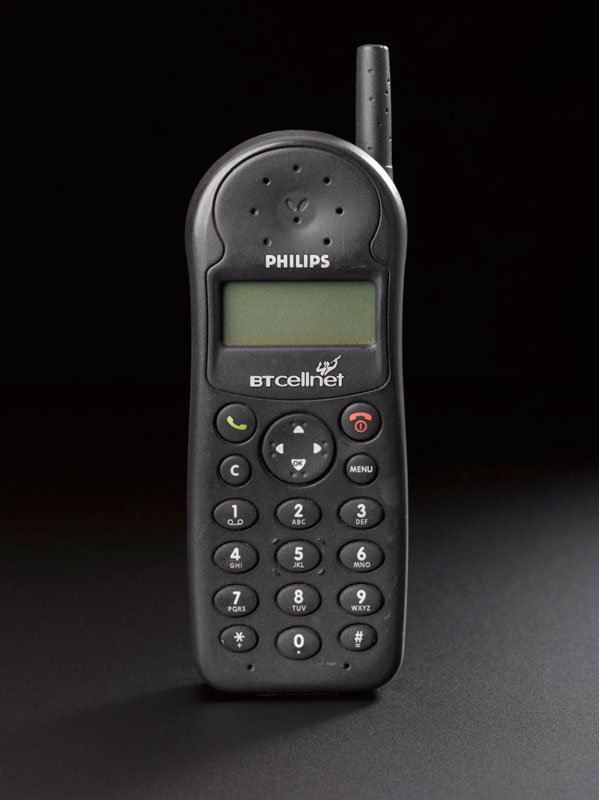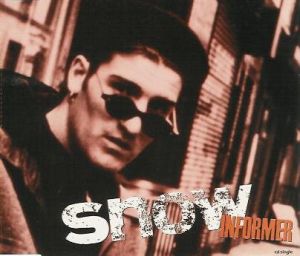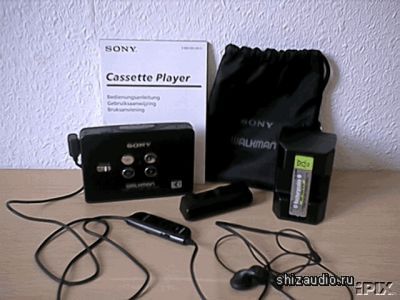If you, like me, were born in the 1980s, then you are a member of the generation of analog natives - those who grew up during that period in which the Information Age reached the masses. Of course, all of humanity up until that point lived fully analog lives; but uniquely, our generation is the one which experienced first-hand the transition from the analog to the digital world. So “analog native” is only meaningful in a world in which such thing as a “digital native” exists as a counterpart.

An audio cassette. Photo by Hugo Cardoso on Flickr: https://flic.kr/p/SbEgKw
Past generations lived their entire lives with no inkling of the endless parade of inconvenience and inefficiency under which they suffered. Analog natives, having transitioned to the new order of things, can now reflect with a strange mixture of horror, nostalgia and disbelief on the way we - we! - used to live.
The following is a collection of artefacts which capture snapshots of my life as an analog native.
The Collection

Philips TCD128, manufactured 1999-2003. Image courtesy of the Science Museum
I remember my very first mobile phone. When looking up and image of it, I discovered that it is literally a museum piece. The Philips TCD128 is part of the permanent collection at the Science Museum in London. It had a 2-line LCD display. This is pre-snake. It’s literally just a phone.
I actually knew the number of the public payphone next to the McDonalds in Bolton town center. If I was running late for meeting my friends on a Saturday morning I would call that phone in the hope that one of them would hear the ring and pick up. Sometimes it even worked!
Punctuality really mattered back then.

Cover artwork of the single 'Informer' by Snow, which was released in 1992
As incredible as it may now seem, there existed a time in my youth where I might wonder about the lyrics to a song, yet I’d simply have to resign myself to just never knowing. Now not only can I access the lyrics in an instant, but I am also treated to an annotated version which places the lyrics in the context of Snow’s jail time for attempted murder, as well as the fact that “A licky boom-boom down” means “I’ll beat you down” or “I’ll gun you down” depending on how you interpret the Jamaican Patois.
How many times per day do you fleetingly wonder about some unknown fact and then instantly relieve that curiosity via that little sum-of-all-knowledge device in your pocket? Or quickly settle an argument in the same way?
Well, we also used to wonder about things. We also used to argue over trivia. But we just had to accept the possibility that, failing prolonged and concerted effort, we would never ever find out. And strangely enough, it seemed just fine that way.

Deadly Towers, released for the Nintendo Entertainment System in 1987
I remember shopping for computer games with my sister. We’d save up pocket money for a few weeks and then head down to the local games shop. We had no idea what was any good, so we’d just browse the shelves looking for something interesting based on the cover art or marketing blurb. One time we chose this game - Deadly Towers. It had exciting cover art and a reassuring Nintendo seal of quality. It turned out to be the worst and most frustrating game we had ever played.
There was no Metacritic, no Rotten Tomatoes. If you were lucky you might have read last month’s gaming mag or seen a Barry Norman review on the telly.
These days I sometimes spend an inordinate amount of time researching the optimum movie to watch. I’ll ruminate about how “86% and sounds interesting” may qualatively compare with “92% but sounds slightly dull”. Often I give up because it’s just too hard to decide.
Back then act of choosing a game to buy or a movie to rent always involved an element of real risk. It was a leap of faith. Once you’d made the effort to go down to Blockbuster or Game, you sure as hell weren’t going to leave without choosing something. Sometimes the risk was richly rewarded. Sometimes you blew your savings on Deadly Towers.

Sony Walkman WM-EX 618, released around 1995
I remember when my sister got this walkman. Not only did it feature “auto-reverse” (you don’t need to pop out the tape and flip it to play the next side), but it also let you skip forwards by detecting the silence between tracks.
Music piracy back then was a labour of love. You really had to earn your illicit collection through hours spent kneeling in front of the tape deck, finger poised over the “stop” button as the track faded out.
Later on I got a minidisc player and then a portable CD player that could read mp3 CDs. The piracy process got a little easier to automate, but still quite time-intensive. By the time I got a a Creative NOMAD Jukebox (a 20GB hard drive that plays mp3s) I was numbly and efficiently amassing a huge collection via Napster and Limewire, much of which I didn’t even bother to listen to more than once or twice.

Assorted plastic bottles typically found in a bathroom. Image courtesy of wrap.org.uk
The adverse effects of our phone-driven always-on lifestyle is much lamented. Notifications constantly beckon, and it is a rare individual who is able to resist the siren call to discover exactly who is attending which event tomorrow. As little as 10 seconds without external stimuli is enough to trigger the reflex in many phone users. Before they know what is going on they find themselves vacantly scrolling through photos of plates of food.
On the toilet. A bus journey. A long queue at Tesco. Waiting for the coffee machine at work. All situations which, in the past, would require one to languish in one’s own company without an immediate and clear target for the mind to focus on. Thankfully, the ever-caring engagement teams from our favourite social media companies have effectively colonised this downtime, saving us the torment of having to formulate thoughts of our own or reflect for even a moment on our present environment or circumstances.
It should be noted, however, that the craving for external distraction is nothing new. In times past we used whatever was to hand as a form of escape from the agony of having nothing much to do. This is why we all know that sodium laureth sulphate is present in almost all toiletries, and that “aqua” is usually the main ingredient.
Postscript: Progress?
Without question, many of the conveniences and new possibilities afforded by computers represent a positive change for humanity. I’m very happy that I can do Internet banking and online shopping or get a weather forecast or travel directions whenever suits me. I take an interest in technology and I am optimistic about technological solutions to certain pressing problems.
Yet there is a trade-off. I’m not just referring to the emerging surveillance dystopia which is currently making headlines.
I’m talking about the loss of skills; the withering of unused faculties; the removal of constraints which may have been beneficial.
Analog life, with all of its inefficiency and inconvenience, engendered a certain deliberate way of living. Plans had to be thought through. Journeys had to be well-planned in advance. Meetings had to be kept. Change was costly in a way that encouraged deliberation and conviction.
Nowadays communication is so efficient, information so abundant that capriciousness has a much lower cost.
Before social media there was simply socialising. You could choose to connect with real people in real life, or not.
Now we have a third option which consists of connecting with curated representations of real people in a polarised and warped version of real life. Plus ads and tracking.
I’m no luddite. As a software developer I’m actively contributing to the further digitisation of our world. But I also remember that, on the whole, we got by pretty well without most of this stuff. I’m glad that I finally know what “A licky boom-boom down” means, but at what cost?
Technological advance is not an end in itself. It must always be justified. “Because we can” is not good enough. We must know the costs. If it came down to a choice between a universally divided, distracted, manipulated, surveilled digital dystopia and the analog world of my youth, I’d gladly take Deadly Towers and sodium laureth sulphate.